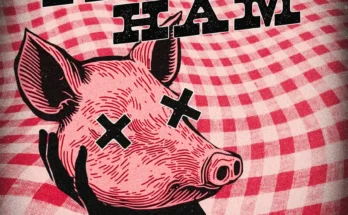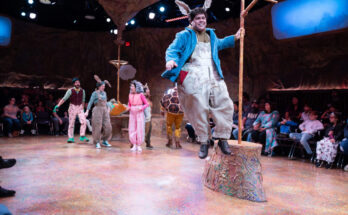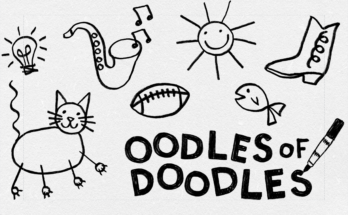Story by Julie Bookman
Photos by A’riel Tinter
Jason Reynolds has a plan. He shouts it out in big, bold letters on his website. His plan is to NOT WRITE BORING BOOKS. He knows that when it comes to kids reading books, the stats are especially grim for boys. But he also knows that “many of these book-hating boys don’t actually hate books, they hate boredom.”

This from a bestselling author who got through high school “pretty easily” without ever having read a single book. That said, he’s been serious about poetry since elementary school, and he majored in English in college.
Though Reynolds did finally crack open and finish the likes of To Kill a Mockingbird and Lord of the Flies, his brain simply couldn’t plug into those class assignments back in the day.
Now among the hottest names on the book scene for upper grade levels, Reynolds, 35, has already produced a dozen titles. At one point he had three different books on The New York Times bestseller list. He releases two to three books a year because, in part, “I have so much I want to say.”
In 2017, Reynolds received the NAACP Image Award for Outstanding Literary Work for Youth/Teens. Most of his books, some of which unfold through verse, have received big-time honors and awards.
Take Ghost, for example. This fast-paced 2016 novel about an at-risk boy named Castle (“just call me Ghost”) Crenshaw, was a National Book Award finalist.
One of Reynolds’ coolest and most compelling books is Long Way Down (2017), which takes place over the course of just one minute, as a 15-year-old wrestles with his brother’s murder.
Reynolds was recently announced as one of 10 semi-finalists for this year’s National Book Award for Young People’s Literature for Look Both Ways: A Tale Told in Ten Blocks.

But back to Ghost. It’s not a spooky story for the season of spook, but it revolves around a troubled seventh-grade boy’s constant worries and considerable fears. That story now springs to life on the Rich Theatre stage at the Woodruff Arts Center.
Each October, the Alliance Theatre mounts a show that targets middle and high school audiences. For this year’s offering, Tinashe Kajese-Bolden directs Idris Goodwin’s (of the “Break Beat Play” series), stage adaptation of Reynolds’ novel. Goodwin’s script calls for seven actors, all of whom handle multiple roles except for the title character.
Did Reynolds ever entertain the idea of writing the play himself?
“No way,” he says. “I always say no. I do what I do and don’t tamper with it from there. I respect the playwrights because they’re the playwrights.” (This is his third book to be adapted for a stage piece.)
Reynolds is so busy with book deadlines and appearances that he couldn’t be sure he’d make it down from home in Washington, D.C., to catch this Ghost in Atlanta.
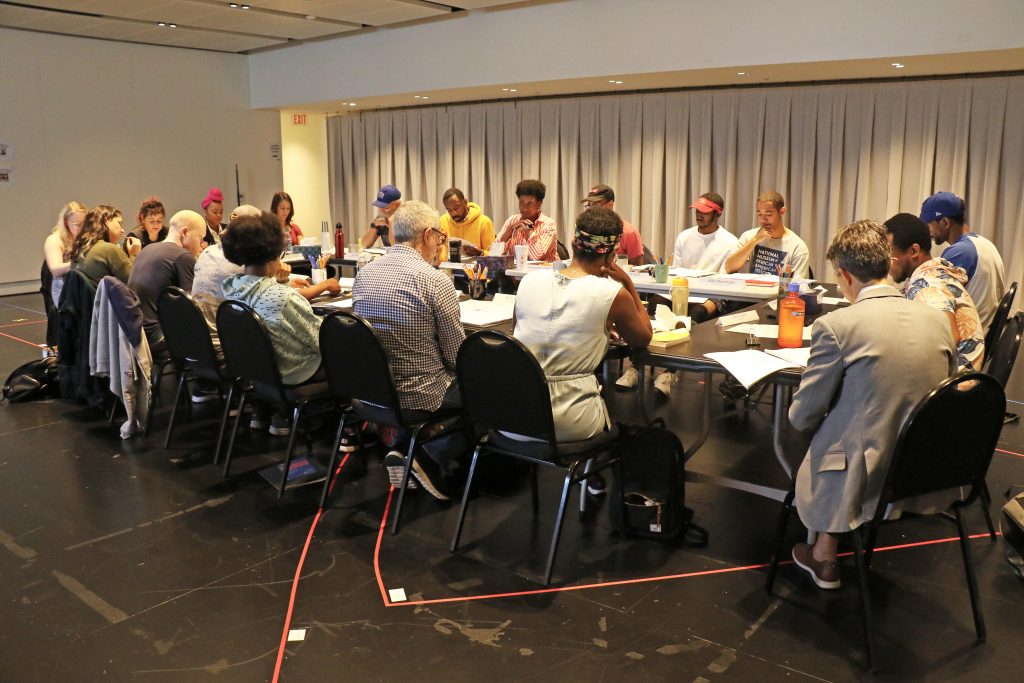
Goodwin’s stage directions specify that the book is about movement: “We move through memory and setting swift but it’s all connected,” the playwright notes.
“That’s an interesting take on it,” says Reynolds. “There are a lot of ways of thinking about movement. But, yeah.”
Physical movement is certainly one aspect, because Castle Crenshaw’s running speed gets him a spot on The Defenders, an elite city track team.
Castle lives in the saddest, poorest section of town. He has never been a joiner, though he has vague goals about playing basketball.
He spends loads of time worrying about how he can control himself when kids at school tease him. He would prefer to avoid another altercation. But, before you know it, he’s back in the principal’s office because of another altercation. At least weekends give him a two-day break from stressing over that word, that thing.

The night that his dad shot at him and his mom was the moment when Castle realized how fast his legs could go. “My dad was actually shooting … at … US! His wife and boy!”
Mom and son ran “into the street, breaking into the darkness with death chasing behind us,” is Castle’s memory in the book.
Now Castle’s dad is in jail, but the trauma of that night remains a heavy burden. What if Dad gets released somehow, and comes after them again? That’s one reason that Castle and his mom Terri now both sleep in the living room.
Ghost, says Reynolds, “is not about running itself, but moreover about the feeling of suffocation, of being out of breath. And the only way to win any race is to somehow be comfortable with the discomfort of being out of breath.”
The story, he says, is about movement relative to the idea that plenty of kids are running from something. “I wanted to get at the idea that kids need to find ways to move past the traumas of early life and the fear you may have from that and that long-lasting insecurity.”
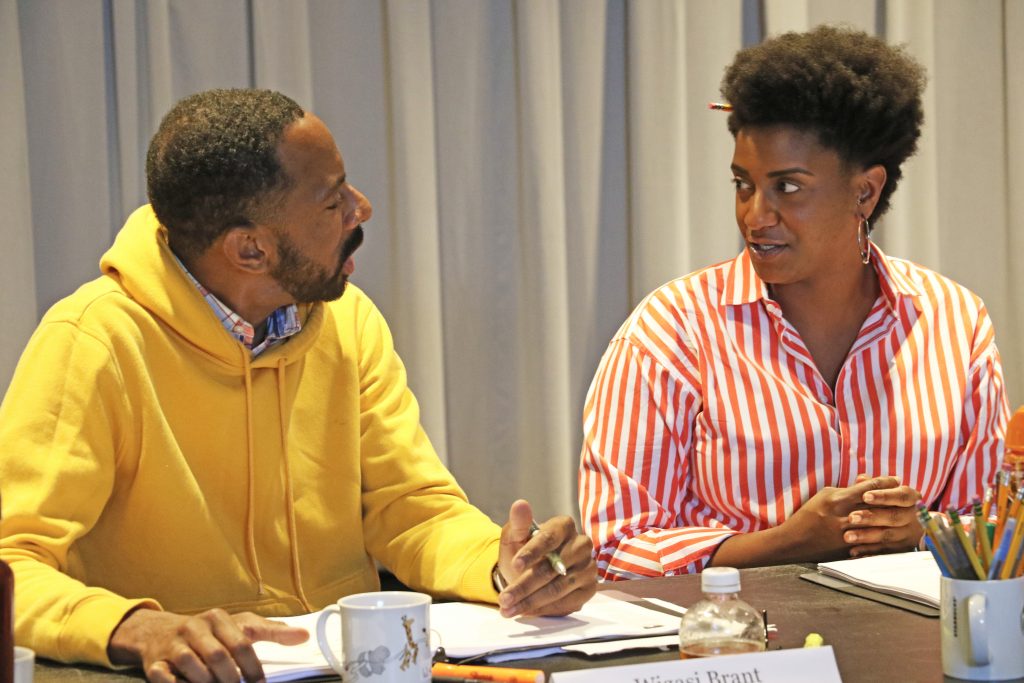
A fair portion of both book and play involves Castle and other Defender “newbies” all training for their first track meet under the expertise of Coach, who has his own story waiting to be revealed.
Castle almost believes that fear is the thing that makes his legs go crazy fast. He wonders if he’s still so fast because now he’s scared of himself, of what his worries, anger, and fears could make him do.
Coach gets it. But he also tells his new protégé: “Trouble is, you can’t run away from yourself. Ain’t nobody that fast.”
Ghost is also about the value of young people finding their passions, or at least something they’re good at.
“That’s the premise of my entire life and a regular theme for me,” says Reynolds.
“The truth is, our dreams could be as far away as forever or as close as lunchtime. Nobody actually knows. The things that you want to be a part of could be coming your way, looking for you. Or, it could be a lifelong chase. But either way, it’s your obligation, and it’s a healthy thing, to go and hunt for it.”

